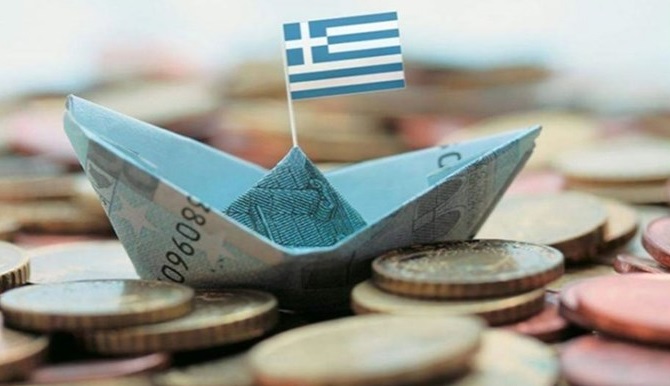The survey was conducted during the period June 20 – July 4, 2025.
In the second quarter of 2025, the general economic climate index (EASE/ICAP CRIF-CEO General Index) recorded a further decline to 142 points, compared to 146 points in the previous quarter.
This new decrease in the index reflects the ongoing uncertainty and concern among CEOs regarding unresolved issues in international economic relations and geopolitical tensions, which do not appear likely to be resolved soon and continue to negatively affect both the current economic situation and forecasts for the potential impacts on the economies of European Union member states and Greece.
Analysis of the results by company size category shows a decline in the index for small and medium-sized enterprises, while large and very large enterprises saw an increase. The current economic status index (EASE-CEO Current Status Index) decreased to 142 points from 145, and the expectations index (EASE-CEO Expectation Index) fell to 142 points from 147 in the previous quarter.
More specifically, the country’s current economic status index fell again to 192 points from 195 in the prior quarter. The percentage of CEOs who reported an improvement in the country’s current economic situation compared to one year ago decreased slightly to 23% from 24%.
Among very large enterprises, 27% of CEOs reported an improved current economic situation in the country. The forecast index for the country’s economic condition one year ahead decreased to 146 points from 161. The percentage of CEOs who believe the country’s economic situation will improve in the next year fell to 13% from 20%, dropping further to 5% among CEOs of very large enterprises.
The current economic status index of the sector in which companies operate decreased to 157 points from 163 in the previous quarter. The percentage of CEOs who reported that the current state of their sector is better compared to one year ago declined to 20% from 23%. This percentage is higher among CEOs of service companies (29%) and very large enterprises (32%).
The expectations index for the economic situation of the sector fell to 144 points from 163. The percentage of CEOs who expect their sectors to be in a better economic condition one year from now compared to the present declined to 17% from 26%.
The current economic status index of companies registered a slight decline to 115 points from 118. The percentage of CEOs reporting that their companies’ current economic condition has improved compared to one year ago stood at 42%, rising to 59% among CEOs of very large enterprises.
The CEOs’ expectations index for their companies’ economic situation in the next year decreased to 125 points from 135. The percentage of CEOs expecting improvement in the next year was 41%, increasing to 62% among CEOs of large enterprises.
The current capital expenditure investment index rose to 133 points from 121. The percentage of CEOs stating that their companies’ current investment expenditure is higher compared to the previous year increased to 33% from 25%, reaching 50% among CEOs of very large enterprises. The investment expectations index increased to 148 points from 137.
The percentage of CEOs who expect investment expenditure in their companies to be higher in the coming year rose to 36% from 25%, reaching 45% among CEOs of very large enterprises.
The current employment index declined to 111 points from 128. The percentage of CEOs stating that the number of employees in their companies is higher compared to one year ago was 36%, increasing to 50% among CEOs of very large enterprises. The employment expectations index increased to 149 points from 139.
The share of CEOs who expect employment in their companies to increase one year from now was 35%, rising to 40% among CEOs of industrial enterprises.
In addition to the core quarterly questions, CEOs were asked their opinion on the contribution of labor market reforms so far to the rise in employment, as reflected in the ICAP CRIF study on Employment and Unemployment based on ELSTAT data published in the ICAP CRIF Leading Employers in Greece 2025 edition. Forty-four percent (44%) of CEOs responded that the contribution of the reforms was high, with this percentage increasing to 55% among CEOs of commercial enterprises and significantly decreasing to 7% among CEOs of industrial enterprises.
Forty-three percent (43%) of CEOs stated that the contribution of labor market reforms was moderate, while 13% considered it low. CEOs were also asked for their opinion on the positive impact of adopting Sustainable Development and Corporate Social Responsibility practices on achieving companies’ financial goals. Twenty-seven percent (27%) of CEOs responded that the impact is high, although this percentage falls to 14% among CEOs of very large enterprises.
Forty-five percent (45%) of CEOs stated that the impact is moderate, increasing to 54% among CEOs of small and medium-sized enterprises. The remaining 28% of CEOs believe that the impact of Sustainable Development and Corporate Social Responsibility practices on achieving financial goals is low, with this percentage rising to 47% among CEOs of industrial enterprises.
EASE management consultant Vasilis Rambat commented: “The economic climate index in the second quarter of 2025 recorded a further decline compared to the previous quarter. This downward trend reflects CEOs’ ongoing uncertainty regarding international economic and geopolitical tensions, which could adversely affect the Greek economy.
At the same time, the vast majority of CEOs express the view that labor market reforms have contributed to the rise in employment with moderate to high impact. Furthermore, one in three CEOs states that Sustainable Development and Corporate Social Responsibility practices positively and significantly influence the achievement of the financial goals set by their companies.”















